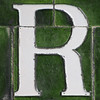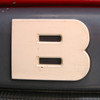It was *very* difficult, after doing everything I possibly can to keep my privacy intact online for years, to put myself out there the way Facebook requires. I initially intended to keep my Facebook page for professional contacts only, but after a few days I succumbed to the temptation to add friends and people I'd known in the past as Facebook friends.
I'm glad I did for personal reasons, but I do see the enormous potential for professional networking that Facebook provides. I also see the potential for abuse. For instance, as I said before I have always tried to protect my privacy on the Internet. However, when I logged into my Facebook account one day, I noticed that someone popped up on my suggested Friends who never had my real name. I had, however, sent her email with the same email account with which I'd set up my Facebook account. Although I never gave Facebook permission to mine my Hotmail account for friends, apparently she did give permission on her account. Did I come up as a suggested friend on her Facebook account? I think that if so, that would be a gross violation of my privacy by Facebook.
Thursday, August 13, 2009
Thing 7: RSS Feeds
I posted my feelings about Google Reader, which is a tool to utilize RSS feeds, last time. Any library that is considering creating a blog should make sure that their blog is available as a feed. The downside of pushing your feed out to subscribers is that those subscribers are not checking your library's website each day for news, so how can you tell if anyone's reading your news? How can you tell if your marketing of your blog is effective? You need a way to count subscribers. Here's an article that enumerates the difficulties in counting RSS subscribers, along with a link to a software tool for counting RSS subscribers:
http://www.rss4lib.com/2007/05/counting_rss_subscribers.html
And here's a method using Google Analytics:
http://www.gospelrhys.co.uk/2007/09/how-to-track-new-rss-subscribers-google-analytics-in-3-easy-steps.html
http://www.rss4lib.com/2007/05/counting_rss_subscribers.html
And here's a method using Google Analytics:
http://www.gospelrhys.co.uk/2007/09/how-to-track-new-rss-subscribers-google-analytics-in-3-easy-steps.html
Monday, August 10, 2009
Thing 6: Blog readers
To me, blog readers are one of the most useful of the technologies covered in this project. One of the things that's always overwhelmed me about the Internet was the sheer mountain of information to wade through. And by information I mean daily webcomics. Previously I have had to go to several different websites each day for webcomics, some of which are not updated on a daily basis. So on top of the hassle of clicking through several bookmarks (or worse yet, trying to remember URLs) there is the added frustration of NO NEW CONTENT. Google and other blog readers solve all of those problems. I had been semi-aware that such things were out there--I have seen colleagues using services like Bloglines before--but there weren't any blogs I really wanted to read on a daily basis. Webcomics are a different story.
It's nice to have the time to actually sit down and get these feeds set up.
It's nice to have the time to actually sit down and get these feeds set up.
Thing 5: Image Generators
I chose to play with Image Chef, because I have been thinking about a cereal box image frame for some time. My biggest problem was that Image Chef required 3M pics or below and the picture I wanted to use was 34M. So I had to open up the photo editor and resize the picture. It'll be nice when resizing pictures is built into Windows. Or whatever operating system. That would be awesome...just click on the picture, specify dimensions, resolution, and file type, and voila!
Anyway...wishful thinking, but here's my cereal box:

Anyway...wishful thinking, but here's my cereal box:

Thursday, August 6, 2009
Thing 4: Flickr Mashups
Now these are some interesting little applications. I especially like that if you don't like a letter in Flickr spell, you can click on it and get another photo file.









It looked a lot better the first time I did it, but I had it all in one line and it was breaking across two lines like "DERBYL" "OVE" which just doesn't make any sense. So I split it into two different words. Now it's split across four lines on my regular browser window. Oh well.
Captioner is fun, too. I really don't think I should be having this much fun at work...there's probably an ordinance against it or something.

I was, in actuality, helping to deflate a hot air balloon, although I like to think I could bust up a book-rustling ring too.
Also, my boss might very well kill me for posting this. But I can't resist.

I can see potentially tremendous applications for these in YA programming, especially.









It looked a lot better the first time I did it, but I had it all in one line and it was breaking across two lines like "DERBYL" "OVE" which just doesn't make any sense. So I split it into two different words. Now it's split across four lines on my regular browser window. Oh well.
Captioner is fun, too. I really don't think I should be having this much fun at work...there's probably an ordinance against it or something.

I was, in actuality, helping to deflate a hot air balloon, although I like to think I could bust up a book-rustling ring too.
Also, my boss might very well kill me for posting this. But I can't resist.

I can see potentially tremendous applications for these in YA programming, especially.
Thing 3: Flickr
Flickr is great. Myspace is nice for seeing a friend's pics, and one can always search online for images, but Flickr allows a user to see some striking photography from unknown photographers. It's sort of like the State Fair of the Internet. I did my Flickr search for roller derby, a subject near and dear to my heart and found this (probably copyrighted) image from the Anne Calvello-old school-type derby.

Now, I'm not advocating kicking your opponent in the face but I will acknowledge there are times when one wants to. But to get into more of what Flickr terms "the gorgeousity," and I love that word by the way, take a gander below.

Breathtaking.

Now, I'm not advocating kicking your opponent in the face but I will acknowledge there are times when one wants to. But to get into more of what Flickr terms "the gorgeousity," and I love that word by the way, take a gander below.

Breathtaking.
Wednesday, August 5, 2009
Thing 2: Web 2.0 and Library 2.0
I'll get this out of the way first: I am not a fan of the "Library 2.0" designation. Terminology is very important, and I think that this particular terminology is not only derivative and unimaginative, but damaging. It sends a pretty poor message--that libraries are only now evolving to a point where we can say we're at the second level. As an avid gamer all my life, I can say that for public libraries in America to take 100+ years to reach the second level would really be pitiful, were it not so grossly inaccurate.
I'm not a big fan of buzzwords, and this is one if there ever was one. Businesses have been talking about "customer-centered" strategies for decades and "Library 2.0" incorporates application of those "give 'em what they want" principles to libraries. Libraries have been and will continue to be hubs of communities. Libraries are about sharing and working together to make the most out of limited resources. These are just not new concepts. They're really no big deal and if they were revolutionary ideas, then they were revolutionary ideas 20, 30, 50 years ago. What is new are the ways that we are now able to approach such concepts using new technologies that are creating tremendous opportunities. Web 2.0 sets the stage for "Library 2.0."
To further illustrate, let me state, for instance, that you can't have a library consortium without some kind of transport and communication method between libraries. It is simply not possible. Maybe that system is a horse-drawn cart and a telegraph, but it has to be there. And the tools that we have now have (arguably, I guess) are vast improvements on the horse-drawn cart and telegraph. It's great to have patron reviews of library materials, but would those reviews be as useful stuck in a file folder at the reference desk as they would be mounted on a website for 24-7, keyword-searchable patron access? I don't think so. So the technology that enables implementation has become entangled with the philosophy and becomes the visible, tangible, physical symbol for the philosophy, and is what everyone gets so excited about. The danger for the library world--and this has always been a harmful tendency of said library world--is focusing far too much on the current technology and stifling innovation. The thought seems to be, sometimes, "We've got this technology--now how can we use it?" rather than, "What are our patrons' needs and how can we best meet them?" It's a key searching for a lock, or in the simplest terms: a solution searching for a problem.
I do really like one point raised in Tim O'Reilly's article. One of the reasons for the success of Amazon.com, he says, is that they added tremendous value to standard information gleaned from Bowker's ISBN registry, and as a result have a proprietary asset that no one else has yet matched. Libraries must constantly consider not only how the products and services they provide meet the needs of their patrons, but also how the technology they employ adds value. I would argue that libraries are not in competition with Google, but rather that a trained librarian can add tremendous value to a Google search. I would also argue that services such as ChiliFresh that enable readers to post their own reviews of materials (which Amazon has ben able to do for ten years--way to catch up ILS vendors!!) are steps toward providing added value to catalog records, which themselves already add value to library collections. I do have some problems with the way information is submitted, vetted, and displayed using these add-on programs, but I believe that vendors will ameliorate some of these problems over a short period of time. However, libraries (customers themselves!) must demand these modifications from vendors.
I certainly have more thoughts on this topic, but they'll have to wait for another day.
I'm not a big fan of buzzwords, and this is one if there ever was one. Businesses have been talking about "customer-centered" strategies for decades and "Library 2.0" incorporates application of those "give 'em what they want" principles to libraries. Libraries have been and will continue to be hubs of communities. Libraries are about sharing and working together to make the most out of limited resources. These are just not new concepts. They're really no big deal and if they were revolutionary ideas, then they were revolutionary ideas 20, 30, 50 years ago. What is new are the ways that we are now able to approach such concepts using new technologies that are creating tremendous opportunities. Web 2.0 sets the stage for "Library 2.0."
To further illustrate, let me state, for instance, that you can't have a library consortium without some kind of transport and communication method between libraries. It is simply not possible. Maybe that system is a horse-drawn cart and a telegraph, but it has to be there. And the tools that we have now have (arguably, I guess) are vast improvements on the horse-drawn cart and telegraph. It's great to have patron reviews of library materials, but would those reviews be as useful stuck in a file folder at the reference desk as they would be mounted on a website for 24-7, keyword-searchable patron access? I don't think so. So the technology that enables implementation has become entangled with the philosophy and becomes the visible, tangible, physical symbol for the philosophy, and is what everyone gets so excited about. The danger for the library world--and this has always been a harmful tendency of said library world--is focusing far too much on the current technology and stifling innovation. The thought seems to be, sometimes, "We've got this technology--now how can we use it?" rather than, "What are our patrons' needs and how can we best meet them?" It's a key searching for a lock, or in the simplest terms: a solution searching for a problem.
I do really like one point raised in Tim O'Reilly's article. One of the reasons for the success of Amazon.com, he says, is that they added tremendous value to standard information gleaned from Bowker's ISBN registry, and as a result have a proprietary asset that no one else has yet matched. Libraries must constantly consider not only how the products and services they provide meet the needs of their patrons, but also how the technology they employ adds value. I would argue that libraries are not in competition with Google, but rather that a trained librarian can add tremendous value to a Google search. I would also argue that services such as ChiliFresh that enable readers to post their own reviews of materials (which Amazon has ben able to do for ten years--way to catch up ILS vendors!!) are steps toward providing added value to catalog records, which themselves already add value to library collections. I do have some problems with the way information is submitted, vetted, and displayed using these add-on programs, but I believe that vendors will ameliorate some of these problems over a short period of time. However, libraries (customers themselves!) must demand these modifications from vendors.
I certainly have more thoughts on this topic, but they'll have to wait for another day.
Friday, May 22, 2009
Choosing a blog name is difficult
First of all, I hate the word blog. It sounds like "clog." It sounds like it should be something bloody you cough up in the morning. It's just one of those words that makes my stomach turn. But if I'm going to have one, then it's going to have a decent name. But how can I make a play on a word I despise? I started out with words that rhyme with blog:
Clog
Slog
Dog
Bog
Pog
Frog
Jog
Flog
Cog
Fog
Hog
Snog
Mog
Gog and Magog (I'm' stretching here--I don't know how these are actually pronounced and I think those may be soft "g"s)
Shog...and now I'm just making up words
Then, in addition to the variations on these words, there are the words with rhyming syllables:
Goggle
Toggle
Eggnog
Soggy
Those are harder to think up.
I'm not using "clog," for reasons stated above. "Walking the blog" is too obvious. Or "Wag the Blog." What about "The rattling blog" or "The blog down in the valley-o"? Apparently someone else thought of this rhyming trick too. "Flog"? That could be interesting, but I'm pretty sure "Blogging Molly" is taken. I won't even bother to check.
"The Bloglodyte"?
"Angus, thongs, and full-frontal blogging"? A little risque, with a literary edge to boot. I like it, but it's already taken. Oh, well. I generally aim to be clever and entertaining, not creative. And I've taken up too much time with this already. And I haven't even touched on any kind of library topics. Yet.
Clog
Slog
Dog
Bog
Pog
Frog
Jog
Flog
Cog
Fog
Hog
Snog
Mog
Gog and Magog (I'm' stretching here--I don't know how these are actually pronounced and I think those may be soft "g"s)
Shog...and now I'm just making up words
Then, in addition to the variations on these words, there are the words with rhyming syllables:
Goggle
Toggle
Eggnog
Soggy
Those are harder to think up.
I'm not using "clog," for reasons stated above. "Walking the blog" is too obvious. Or "Wag the Blog." What about "The rattling blog" or "The blog down in the valley-o"? Apparently someone else thought of this rhyming trick too. "Flog"? That could be interesting, but I'm pretty sure "Blogging Molly" is taken. I won't even bother to check.
"The Bloglodyte"?
"Angus, thongs, and full-frontal blogging"? A little risque, with a literary edge to boot. I like it, but it's already taken. Oh, well. I generally aim to be clever and entertaining, not creative. And I've taken up too much time with this already. And I haven't even touched on any kind of library topics. Yet.
Subscribe to:
Comments (Atom)
